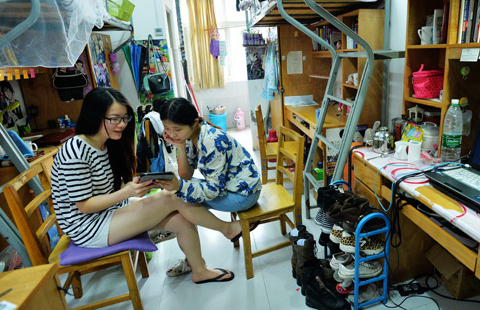Uber raid sparks calls for end to license monopoly
By XU JINGXI (China Daily) Updated: 2015-05-05 10:03Cao suggested that traffic authorities establish an examination for private drivers and issue taxi service qualifications to those who pass. Traffic authorities should also establish an official platform integrating car-hailing apps where licensed private drivers can join free of charge.
"People have an increasing need for high-end, comfortable taxi services that taxi companies cannot offer. The government should provide a reliable official platform to regulate the services and satisfy the public's need," Cao said.
"This will also make it easier for individual drivers to become taxi service providers, which will encourage mass entrepreneurship and serve as a successful example of the 'Internet Plus' strategy mentioned by Premier Li Keqiang."
The Guangzhou Traffic Committee said in a press release that it understands the need for more diversified taxi services and is working with Internet companies to launch for-hire vehicle services.
The rise of ride-hailing apps such as Uber and Didi Dache are forcing the taxi industry in China to make reforms, and that involves breaking the monopoly of taxi companies on acquiring taxi licenses, according to lawyer Yang Gang from the Guangdong Sanzheng Law Firm.
The San Francisco-based Uber has faced regulatory hurdles in China and other countries including South Korea, Japan, India and Spain.
In contrast, Didi Dache, a Chinese startup, has formed partnerships with taxi companies and signed up the private drivers under car rental companies and labor dispatch companies, so that the taxi services using private cars booked on its mobile app are legal, according to Cao.
"As a foreign company, Uber should have hired legal professionals to get thorough knowledge of the laws and regulations in China before it entered this huge market," he said.
- Uber raid sparks calls for end to license monopoly
- EU-China summit key moment to strengthen relations
- Consortium buys US chip producer OmniVision
- Milan-Shanghai flight to establish very important bridge
- China supporting consortium bid for Malaysia-Singapore railway
- Foreign medical device makers under scrutiny
- China regulator denies Siemens bribery probe
- Drone maker soars to greater heights
















